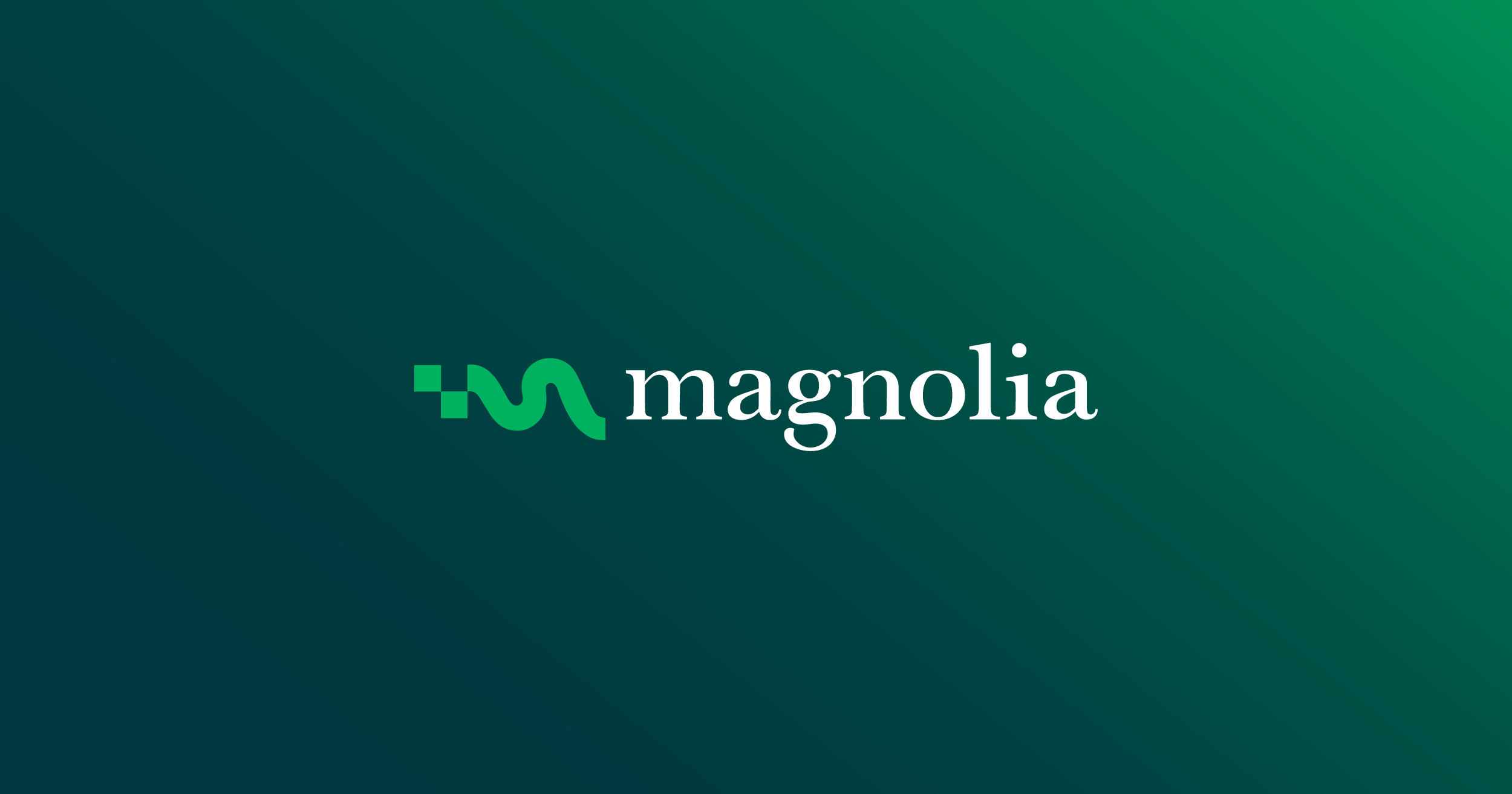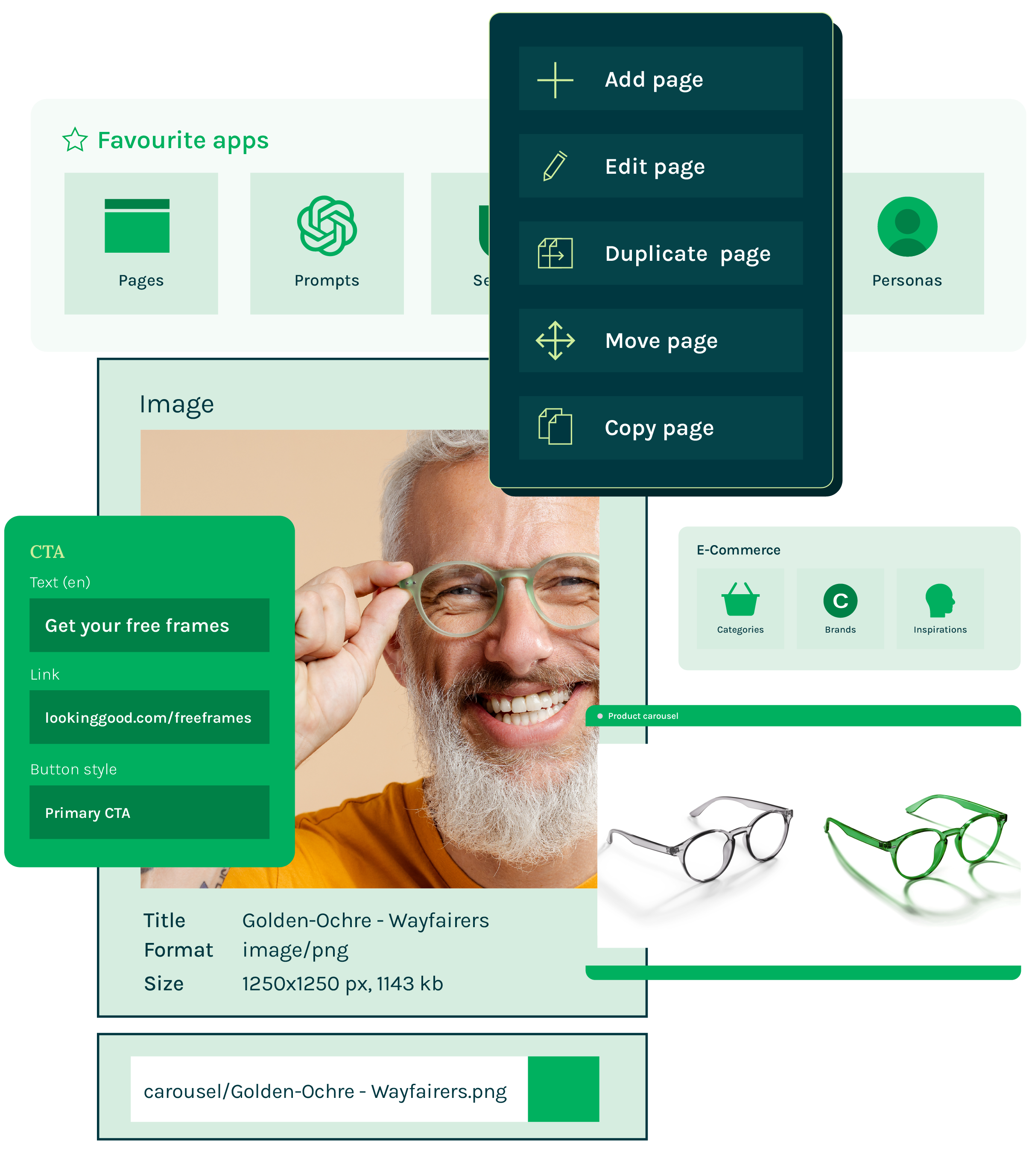Sector
Transportation & Logistics
Country
Germany
Partner
Website
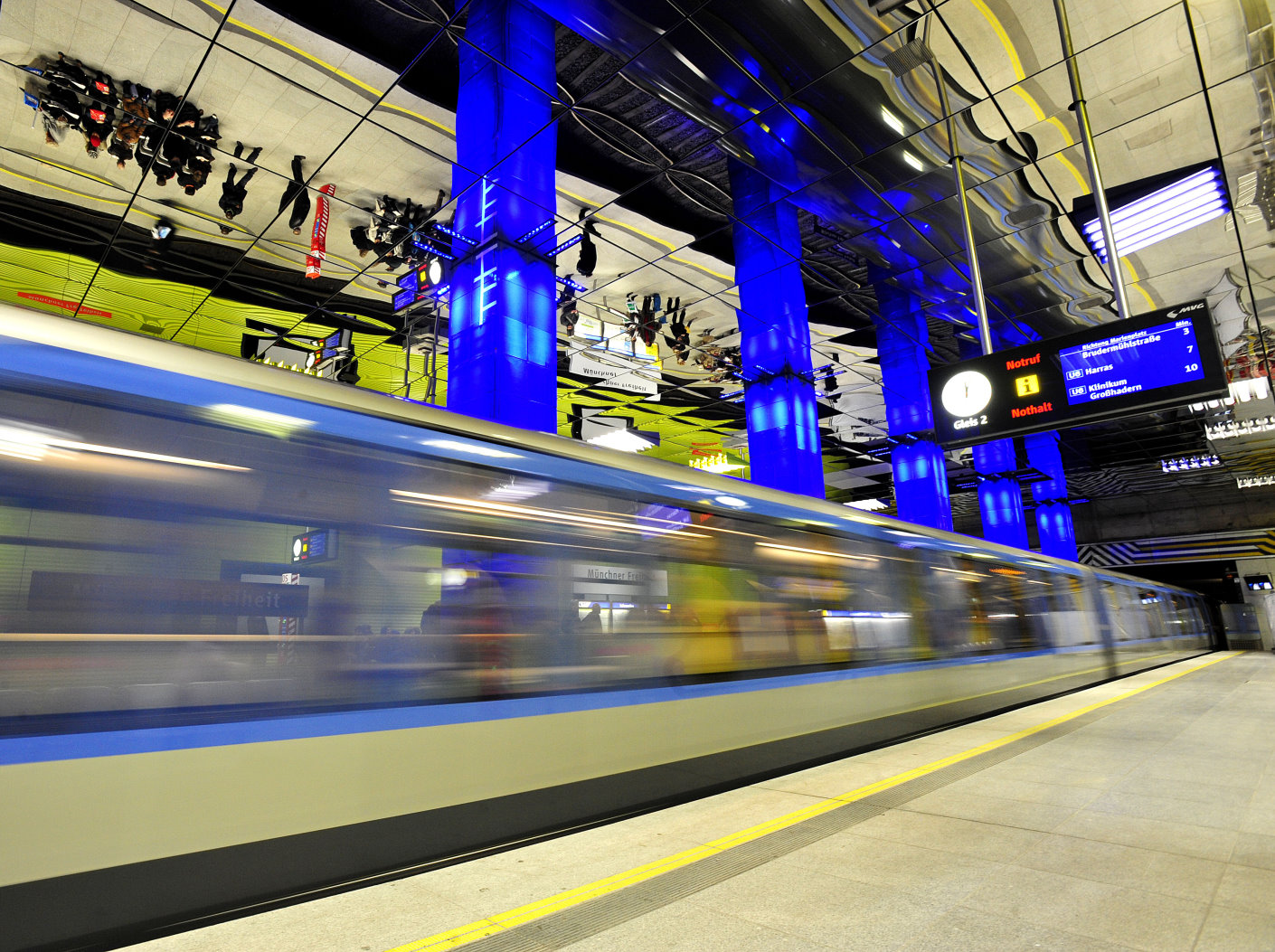
Great customer experience in public transportation
MVG - Münchner Verkehrsgesellschaft (Munich Transport Corporation) - is a subsidiary of SWM (Stadtwerke München). It has its roots in the late 19th century, when horse carriages and trams sounded the bell for widely available public transportation. Today, 3,400 employees are responsible for Munich’s 562 subway cars, 110 trams, around 300 buses and MVG Rad, the new bike hire system. In addition, there are also buses of private partners in operation.
The MVG website plays an important role in keeping Munich on the move, making it easy for travellers to plan and book their journeys. Before adopting Magnolia, MVG used software that couldn’t be accessed from the browser, and a site that could only be updated as a whole. With Magnolia, MVG’s employees find it easy to edit the site, even on the move. The new digital presence is mobile-responsive, attractive and easy to use, allowing MVG to offer commuters up-to-the-minute information - moving MVG not just to the forefront of great customer experience in public transportation, but also advancing the organization in its digital transformation.
Highlights
The Challenge
The Challenge
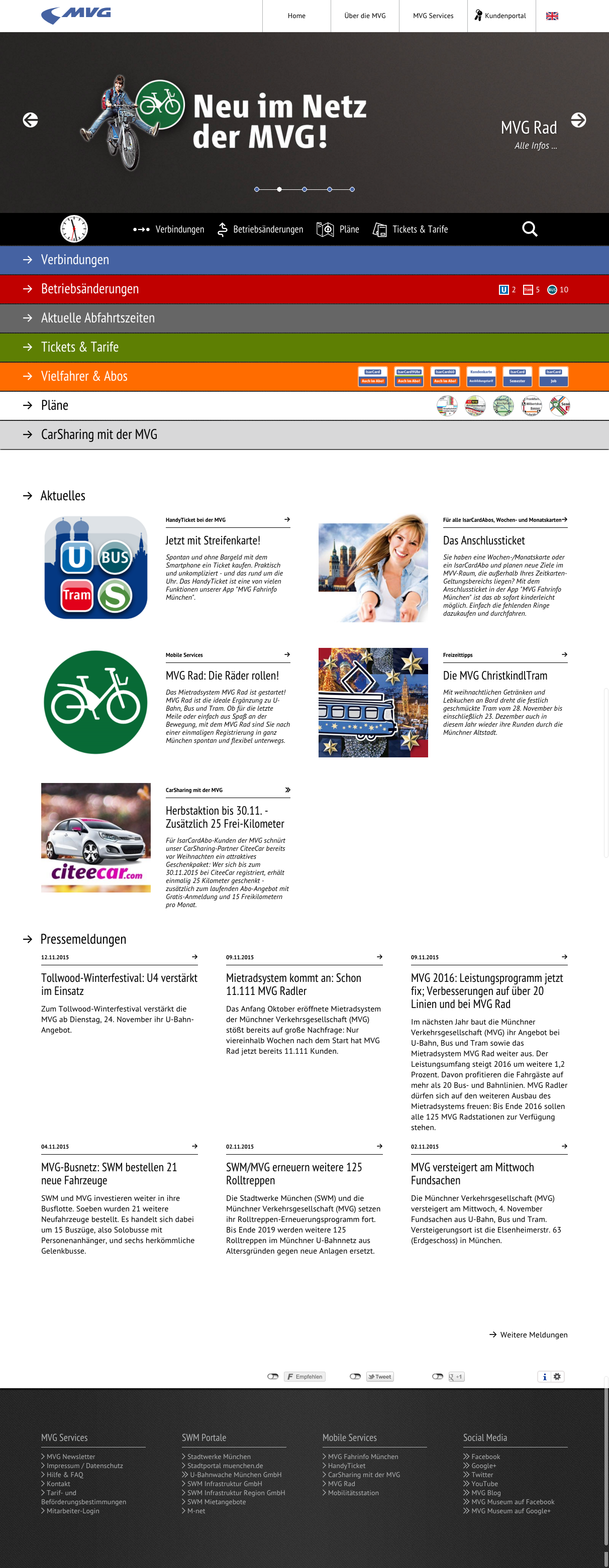
Publish all or nothing
Before implementing Magnolia, MVG used Adobe Dreamweaver, a piece of legacy software that could no longer live up to the transportation organization’s demands. Dreamweaver isn’t traditionally considered as an enterprise CMS, and thus is naturally limited in its capabilities. For example, it’s not browser-based. Instead, it’s a software application that users have to download and install. Employees are confined to their desks for important website work.
Most importantly though, when editors wanted to publish a page, Dreamweaver would always take the site in its entirety and push everything live at once (even unedited pieces.) This would result in scenarios where you’d have to publish outdated or archived pages, as well as then deactivate campaign material that was long gone (but still useful to revisit on the back-end). Simple typo fixes would then result in a massive operation to make sure no outdated material would get published.
Apart from these technical and organizational challenges, MVG also knew that it would soon need a more sophisticated system that would serve it well on its journey into the digital transformation. It needed an open digital business platform to go beyond content - integrations with a multitude of systems were already on the horizon.
The Solution
The Solution
Choosing a well-known enterprise system
MVG’s parent company Stadtwerke München (SWM) already uses Magnolia and is happy with the platform. That’s why Magnolia was a strong contender right from the beginning.
The company did a thorough business and technical evaluation, which convinced it of Magnolia’s powerful performance and usability. In a competitor analysis, MVG additionally found that Magnolia was by far the easiest platform to use.
Magnolia partner EQS helped MVG implement the project. After a planning phase, execution took just over a year, with the project going live in summer 2015.
Using Magnolia as a digital business platform
Customers are increasingly using Magnolia not just as a CMS, but as the hub of all their web and mobile initiatives. This requires the system to be open and flexible to integrate with a wide range of third-party applications, drawing in content from many other sources. In the case of MVG, these are just some of the integrations that it has realized with Magnolia:
- RSS feed
- A feed to let clients know about traffic disruptions
- A customer portal, where customers can log in and, for example, renew their subscriptions
- A feed that shows the status of all escalators
- A tool to use points of sales and ticket machines
- Information on when the next train is leaving
Multilingual and mobile
MVG offers a limited amount of content in English, achieved by simply duplicating the German site tree and translating what’s needed. The company thought about offering more than one additional language (which would be fairly straightforward with Magnolia’s multilingual features), but there simply were not enough business reasons for it yet, due to the local character and interest in the content.
For its mobile site, MVG relied on implementing responsive design in order to cater to most screen sizes.
The Result
The Result
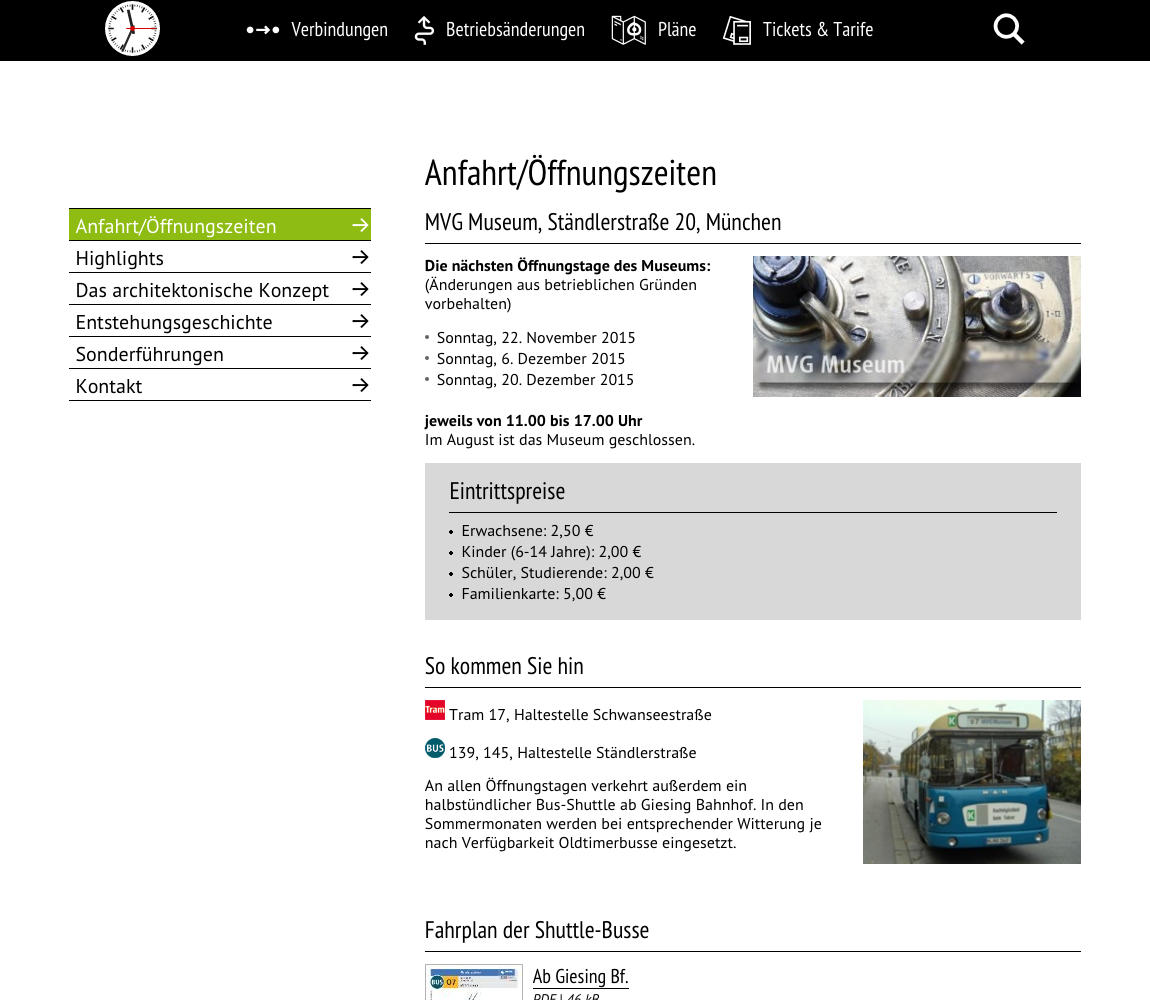
An empowered digital marketing team
Content marketing and planning have become so much easier for the team. Instead of publishing the whole site at once, they can make incremental and time-sensitive changes, such as event-based data or opening times of the MVG museum.
There are two main editors who work on the site. Additionally, there’s a press team that can only edit the press section, two editors for changed traffic times, as well as an editor to take care of the points of sales. The press team are especially happy with their new-found independence - they can now publish their news whenever and wherever they want.
MVG is already working on future Magnolia-related projects, for example, a tool that lets customers evaluate what ticket rate matches their needs best.

“It’s so much fun to work with Magnolia. As the editor in chief, I receive a lot of feedback from users who are full of praise for Magnolia. It allows them to do their job faster and easier - and at the end of the day, more independently. On a business level, we embrace the challenge of playing a leading role in shaping the digital future of our city - and Magnolia’s a decisive part in that.”


